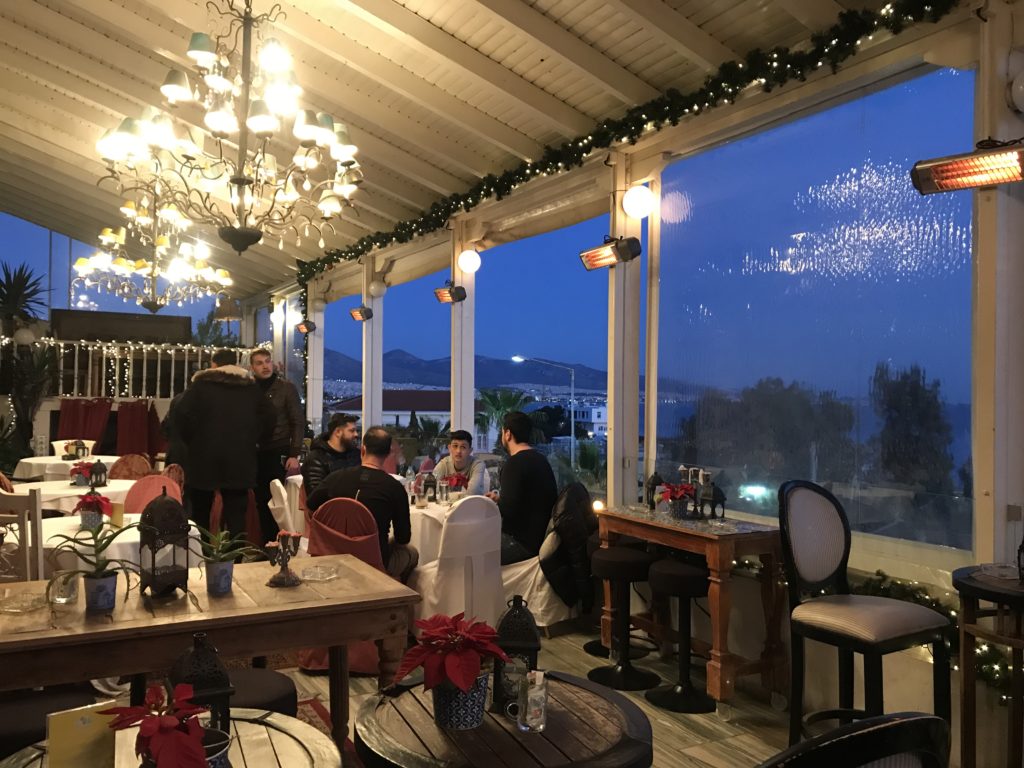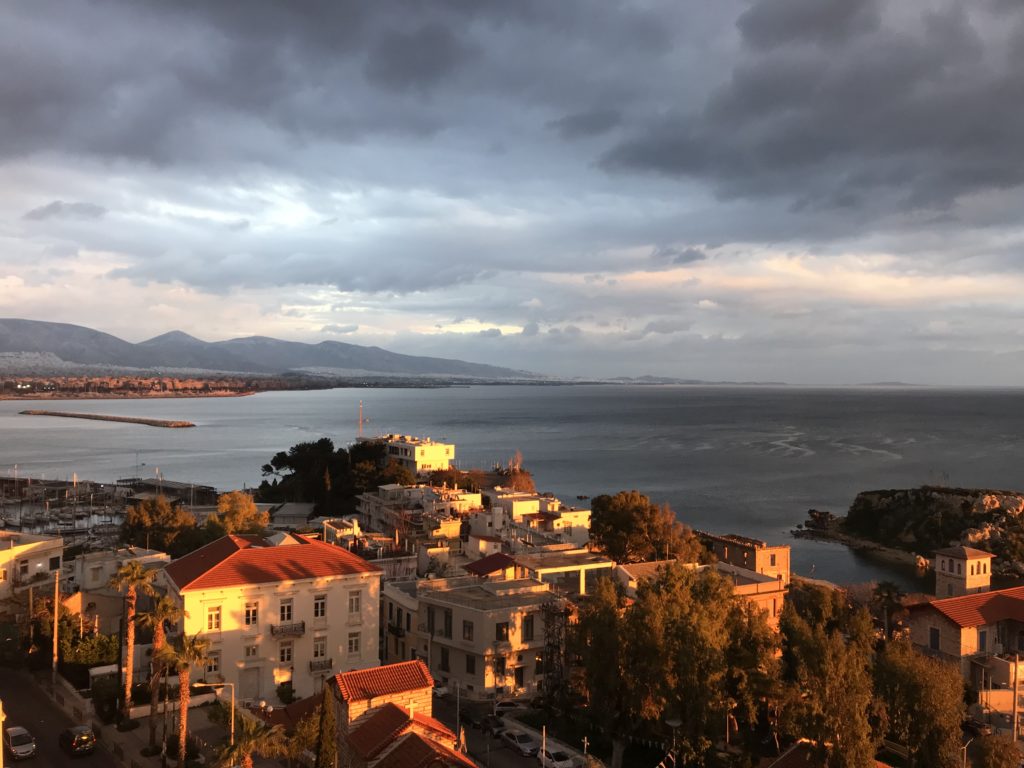Another drink? Daphne asked.
I nodded. Might as well. It was not like I had anything else to do. Or anywhere else to be but here, at the Veranda hotel bar.
With the city’s other bars all closed, the Veranda was my only refuge now. I was the last guest left at the Cavo d’Oro hotel and had spent every evening at the Veranda, sharing tales and laughs with Daphne, the bartender.
Aptly named, the Veranda was a roofed, open-air porch on the first floor, overlooking the sea. With its wooden pillars and comfy chairs, the bar exuded the vague charm of a colonial villa. It was a wonderful place to sit and watch the outside world go by.
Except the world was not going by anymore. It was standing still.
“There is talk of the government imposing a total curfew soon”, Daphne said as she placed a beer in front of me. “And hotels might be shut down too.” She fetched a lipstick and mascara from her purse and started making up her face in the large mirror above the bottle shelves.
Daphne had a Greek mother and a German father. They had met in Berlin in the 1980s, at an anarchist demonstration. Three weeks later, they had travelled to Greece together and got married at the little Orthodox chapel below the hotel.
“My grandparents were quite shocked when they met my dad because he only had one jeans, an iroquois haircut, and one t-shirt”, Daphne told me. “But my mother wanted no other man, so my grandfather finally agreed and bought my dad a proper suit for the wedding.”
A few years after she was born, her parents split up and her father returned to Germany. Daphne had not seen him in years. “He is still a punk, I think, an ageing punk. He found a job in Cologne, digitalising Marxist-Leninist books.”
Few Germans, it seemed, stayed in Greece for a long time. If they were drawn to the Mediterranean, they preferred softer places like Italy over the myth-soaked but otherwise barren lands of Hellas.

Henry Miller famously wrote that in Greece a man could find himself. Perhaps that was true for himself. For all I knew, after one year in Greece, a man could just as easily lose himself here.
“Next time I go to Berlin I want to go dancing at Berghain”, said Daphne. “Can you get me through the door?”
“Sure”, I said.
“I party hard, you’ll see.”
Another hour or two went by like this when suddenly the door flung open and Peter waltzed in, a long woollen scarf draped around his shoulders. He was a neighbour and a Veranda regular, so somehow the official ban on outside guests did not apply to him.
Peter was the scion of an aristocratic family from Saint Petersburg, which had fled to France after the 1917 Russian revolution. He had grown up in Paris and Amsterdam, later lived in the States, and possessed real estate in all those places, as well as various passports. Or so he claimed.
“Let’s have some Chablis, the finest bottle”, Peter cried as he slid into his bar stool, quite drunk already.
He had two companions in tow: a male lover from LA and a lady friend from Paris, a well-known art critic. She insisted on shaking hands with me, and it required a fair dose of German bluntness to fend her off.
“Oh that silly virus again”, she exclaimed. “I doubt it even exists.”
“Well darling, I hear some people out there are already dying”, Peter said, making a gesture towards the open sea.
“Italy looks really bad”, his LA friend concurred, while Daphne uncorked a bottle of white wine and filled their glasses.
“Well, I’m not going to die”, the art critic stated peremptorily. “I have other things to do.” Then she embarked on a diatribe against the French government for closing the country’s borders, which had resulted in Air France not letting her embark the plane back to Paris earlier that evening.
“I am not French”, she explained, slurring her words. “I just live in Paris. You see, I have a British passport, but I hate England, and I also have a Canadian passport, but it’s so cold there now.”
“Seems like you’re stuck with us now”, Peter mocked her, downing his glass and handing it to Daphne for a re-fill.

An hour passed with similar chatter, which was only interrupted when a motorcycle stopped outside the hotel. Since sundown, there was no traffic on the streets below except for motorbikes to deliver pizza or drugs to the quarantined denizens of Piraeus.
The courrier came up the stairs, with a bandana wrapped over his mouth, and put five packs of Marlboro Reds on the counter. He took his money and left without a word, like a visitor from another planet.
“We should have asked for cocaine”, someone said.
“And strippers, for a last hurray.”
The Veranda was beginning to feel like Noah’s Ark, sailing through the night, with the bar as the vessel’s bridge. Except we had forgotten to take any worthwhile creatures on board. Rather, it was a ship of fools.
“They are going to close Athens airport soon”, Daphne announced, reading the latest news on her phone.
Everybody groaned.
It was the ultimate threat. Ever since the corona crisis had begun, many people I knew – members of the Flying Class all of them – considered the virus primarily as an offense to their freedom to travel the globe. In our so-called cosmopolitan way of life, closed borders and mass cancellation of flights were unheard of and clearly unacceptable.
“That’s ridiculous”, Peter opined. “They cannot do that.”
This is enough, I thought. The noose was getting too tight. I pulled out my phone and booked a seat on the morning flight to Hamburg, with an extra bag for my books. I was in the wrong place, with the wrong people, it was time to leave.
It was time to get home.